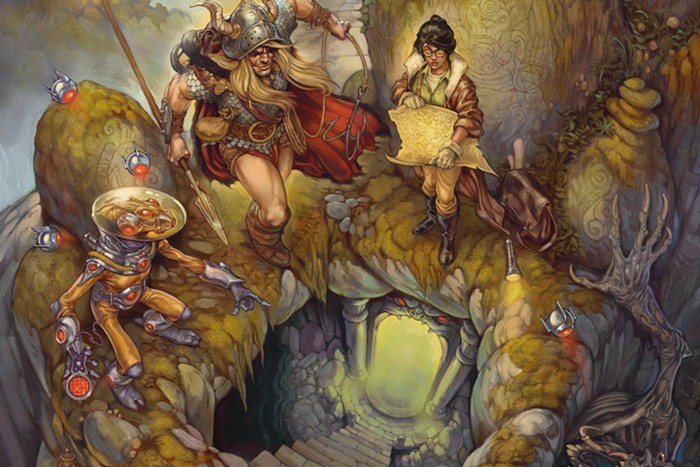by Joan Didion
(Knopf) $25
Joan Didion's new book, Political Fictions, examines American politics by observing the closed rhetorical loop within the group of politicians and reporters she calls the "political class." They are "those who manage policy and those who report on it... those who run the polls and those who quote them... those who ask and those who answer the questions of the Sunday shows... that handful of insiders who invent, year in and year out, the narrative of public life." Political Fictions is a documentation of that narrative over the last 12 years--not a retelling of the narrative, but a telling of the narration itself.
An observer rather than a reporter, Didion discusses politics from a position completely outside the game, as a true alien to the process. "I kept getting new deadlines from the New York Review," she writes of her first assignment in the foreword, "but there remained about domestic politics something resistant, recondite, some occult irreconcilability that kept all news of it just below my attention level."
Didion reconstructs American politics not as a complicated exchange of ideals and realities between two rival parties "fighting for the soul of the nation," but as an intentionally misleading narrative in which both the characters and the narrators are complicit. "When we talk about the process, then," she writes, "we are talking, increasingly, not about 'the democratic process,' or the general mechanism affording the citizens of a state a voice in its affairs, but the reverse: a mechanism seen as so specialized that access to it is correctly limited to its own professionals.... [T]he assumption here, that the narrative should be not just written only by its own specialists but also legible only to its own specialists, is why, finally, an American presidential campaign raises questions that go so vertiginously to the heart of the structure."
This book was written from within the old United States, when it was possible to watch the Democratic and Republican parties struggle to differentiate what they offered from what their opponent offered. Their inability to do so--despite all the "partisan bickering"--resulted in the defining moment of the old United States, the 2000 election. The votes fell so evenly among the two candidates that the difference between their parties seemed as insignificant as a figure of speech.
Something has certainly changed since the planes met their reflections on the financial towers. Politically, it's a new country: The members of Congress now vote unanimously, and the entire American political community--including Al Gore and Bill and Hillary Clinton, The New York Times, and network news--has enthusiastically endorsed George W. Bush as a viable, even effective president.
Now we are living in the epilogue to Political Fictions, where the presidential campaign has become the heart of the structure. Our new nation has taken the natural steps from partisan to nonpartisan politics; finally, the two parties can securely collapse into one another. Partisan politics plays badly in a crisis, and so finally a "united" political body, and supportive media, closes the remaining gaps between its disparate elements, and completes the process of self-sufficiency it had nearly perfected in the 2000 campaign.
This is a blessed moment for the political class: Facing a phantom enemy even more abstract than the other political party, American political players can victoriously unite under the formerly conservative banners of God and patriotism, and the formerly liberal ideals of racial tolerance and protection of freedom. Compassionately conservative Reagan Democrats can cradle the new baby "terrorism" the way it once coddled "communism." The circuit between the two sides closes with their unanimous support of President George W. Bush, who need never stop campaigning.
Joan Didion's book prepares the reader for the new world. It recognizes and documents the political fictions that will transform the new economy into the new war. Indeed, the new America is the old America freed once and for all from its restraints.


















